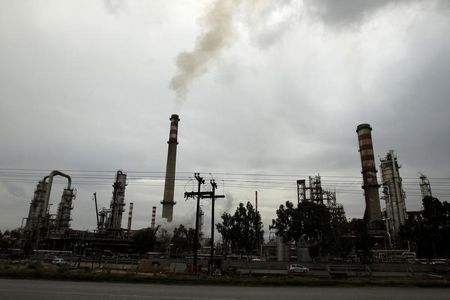* Asia consumes 70 pct of global LNG
* Singapore is at the heart of Asian LNG trade flows
* But critics say it lacks consumer base for LNG hub
* Top LNG-importer Japan also wants to be gas trading hub
By Jacob Gronholt-Pedersen
SINGAPORE, Oct 26 (Reuters) - Singapore plans to establish a domestic natural gas trading market to help support plans to become a centre for trading liquefied natural gas (LNG) and take advantage of the growing importance of the fuel in Asia's energy markets.
Singapore, already a global oil trading hub, is aiming to take advantage of rising LNG supplies in the region, particularly from Australia, and an increasing numbers of buyers especially in China, but also India and other parts of Asia.
The city-state produces more than 90 percent of its electricity from imported natural gas, including LNG, however gas users currently buy the fuel under bilateral contracts.
"(A domestic gas market) will allow domestic gas price discovery that reflects Singapore's demand and supply conditions," S. Iswaran, minister for trade and industry, said on Monday at the opening of Singapore's International Energy Week (SIEW).
Singapore is at the heart of Asian LNG trading routes, a region wich consumes 70 percent of global supplies.
Although price reporting agencies like Platts, a division of McGraw-Hill (N:MHFI) Financial MHFI.N , publish Asian LNG prices, there is currently no established LNG benchmark.
Instead, most contracts are priced off a mix of oil, price reporting agency assessments, and regional contracts such as Britain's National Balancing Point (NBP) or the U.S. Henry Hub.
Last week, Singapore Exchange SGXL.SI told Reuters it planned to create an Asian benchmark for LNG with the aim of breaking the long-established reliance on oil-linked pricing.
Singapore is competing with Japan, the world's largest importer of LNG, to become a regional centre for LNG trade. Japan is in the process of fully liberalizing its domestic electricity market, starting next year.
China, which has large pipeline imports, a growing number of LNG import terminals as well as domestic production, would also be a potential location for a natural gas trading hub, although its development is in its infancy.
Minister Iswaran did not give a timeframe for the initiative, but said that the government had sought industry feedback.
He said Singapore also planned to increase competition in its domestic electricity market.
"(We) will take steps to systematically develop the market, following reviews of gas trading in other jurisdictions such as Belgium, the Netherlands and the UK," Iswaran said.
